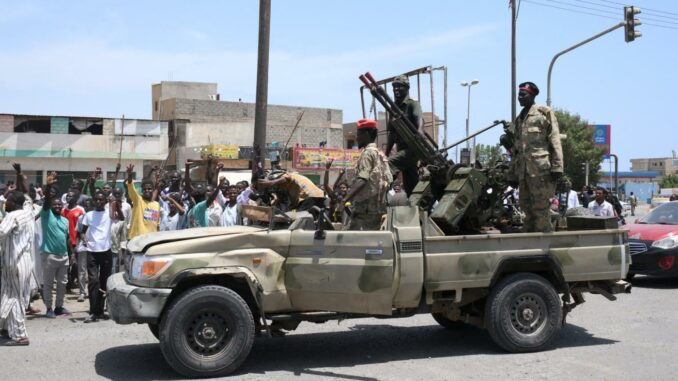
Rifles, artillery and fighter jets were used in the capital and several cities in the country of 45 million people.
At least 97 civilians (56 on Saturday and 41 on Sunday) have died in clashes that began Saturday in Khartoum between Sudan’s regular army and a powerful paramilitary group. The fighting continued on Sunday for the second consecutive day in a power struggle between the two generals who have been in charge of the country since their coup in 2021.
Throughout the capital, men in fatigues, weapons in hand, strolled through streets empty of civilians, while columns of smoke have been rising since Saturday from the city center where the main institutions are located.
According to press reports, heavy gun battles are taking place between the military and paramilitary in the northern suburbs of Khartoum, as well as in the south of the city.
The international community, which watched helplessly as the coup d’état took place in October 2021 and has since failed to convince the generals to sign a plan to end the crisis, has been calling for a cease-fire.
The Arab League met urgently on Sunday in Cairo, at the call of Egypt and Saudi Arabia, two influential players in Sudan, one of the poorest countries in the world, torn by war for decades.
On Sunday, the bombing resounded again in the deserted streets of Khartoum, which were filled with the smell of gunpowder. On social networks, doctors are still asking for help, safe corridors for ambulances and a ceasefire to treat the victims.
The military had warned on Facebook: “The air force will conduct operations to finish with the rebel militias of the Rapid Support Force, civilians must stay at home”.
